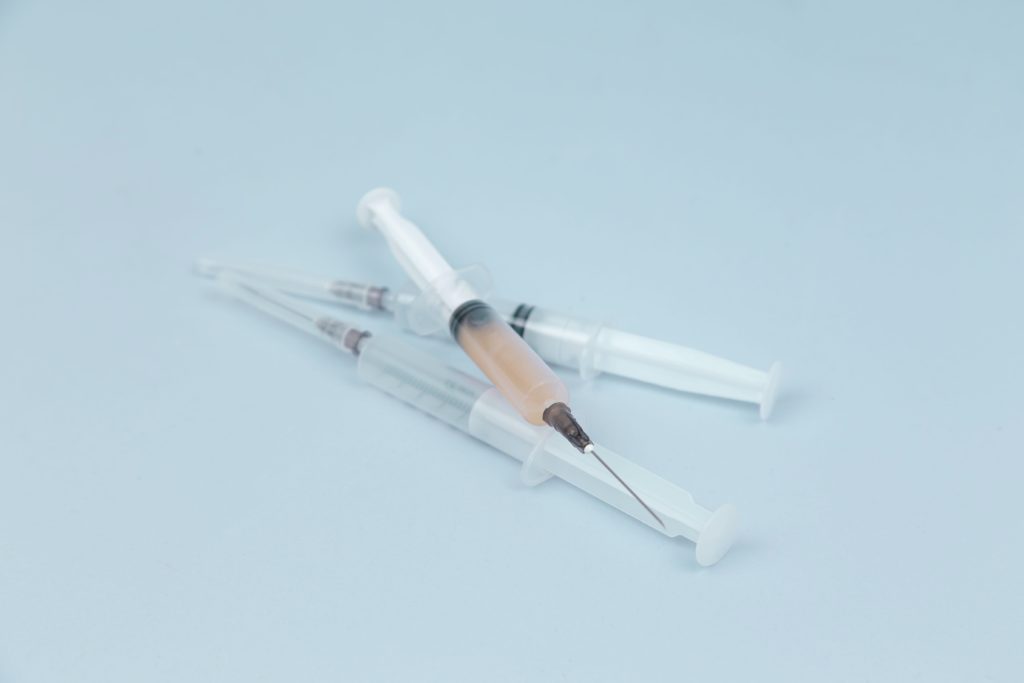What Are Barbiturates?
Barbiturates are a class of drugs developed from barbituric acid. This acid has no medicinal value on its own, but drugs derived from it can increase the action of gamma-aminobutyric acid (GABA). GABA is a neurotransmitter that can affect nerve cell activity in the brain. Barbiturates are depressant drugs that slow down the central nervous system (CNS), and they are commonly used to treat issues like anxiety, headaches, insomnia, and seizures. Some can also be used as effective anesthesia.
Barbiturates have been in use for a long time relative to most medications today, as they were first introduced in the 1900s. These drugs often cause a mild sense of euphoria, decreased anxiety, and sleepiness when used properly. Barbiturates range from Schedule II to Schedule IV drugs, and there are about 12 different types still in use.

What Are Barbiturates? Potential side effects of barbiturates include:
- Lightheadedness
- Onset of dizziness
- Sedative effects
- Nausea
- Abdominal pain
- Vomiting
These symptoms can occur even with legitimate medical use, and as depressants, barbiturates can also slow a person’s breathing and heart rate. There is a wide spectrum of barbiturates, according to the Drug Enforcement Administration (DEA), and the effects of the different drugs can range from mild sedation to coma.
Types of barbiturates
- There are many different barbiturates. The primary difference among them is how long their effects last. The effects of some of the long-acting drugs may last up to 2 days. Others are very short-acting. Their effects last only a few minutes.
- Barbiturates can be injected into the veins or muscles, but they are usually taken in pill form. The street names of commonly abused barbiturates describe the desired effect of the drug or the color and markings on the actual pill.
What Do Barbiturates Look Like?
What Are Barbiturates? There are different kinds of barbiturates. These drugs can be injected into a vein or muscle, but more often they’re taken as pills. The most commonly abused barbiturates have a designated street name based on their color. For example, generic amobarbital is blue and is called “blue haven,” “blue velvet” or “blue devils.” Pentobarbital is yellow and has street names such as “yellow jackets” or “Mexican yellows.” Phenobarbital is purple and may be referred to by street names like “purple hearts.” Secobarbital is red and is called “red birds” or “red devils.” Brand name barbiturates include Butisol, Seconal, Fioricet, Fiorinal and Esgic.
Are Barbiturates Addictive?
What Are Barbiturates? Barbiturates are considered to have a high potential for abuse and addiction. While the use of these drugs has gone down significantly since the 1970s, they are still abused and often used to counteract the effects of stimulant drugs like cocaine. Barbiturates are also one of the drugs most commonly used in suicide attempts.
Some of the signs of barbiturate abuse can include elation, reduced inhibitions, impaired judgment, and changes in mood or emotion. People using the drug may seem to be very tired, relaxed, or sedated. Other signs of barbiturate abuse can include slurred speech and confusion. Barbiturate abuse doesn’t necessarily mean someone is addicted, but using these drugs recreationally increases the chances of becoming addicted.
Effects of Barbiturate Abuse
What Are Barbiturates? Barbiturates are common drugs of abuse; as a result, many physicians prefer to prescribe benzodiazepines. While benzos are still drugs of abuse, they have slightly less abuse potential than barbiturates.
Those who abuse barbiturates tend to opt for short-acting or intermediate pills, such as Seconal and Amytal. Such specific drugs usually produce effects within 15-40 minutes, and it can take up to six hours for the effects to subside. Long-acting barbiturates can bring effects that last up to two days, but abuse rates for these variants are lower.
The most common method of abuse is oral ingestion in pill form, but some who abuse the drugs have been known to inject the substance in liquid form to speed up delivery to the system. Abuse is usually motivated by a desire to reduce anxiety, mitigate the effects of other drugs, and lessen a person’s inhibitions. According to an article published in the Yale Journal of Biology and Medicine, misuse of barbiturates often arises from attempts at self-medication by an individual. Misuse can often lead to abuse and possibly addiction, as it’s always a slippery slope when dealing with addictive substances.
Abuse in large doses can bring on more side effects, in addition to the aforementioned ones. A person exposed to a large barbiturate dose may experience some memory problems, a common symptom of depressant abuse. Impaired judgment and coordination are also common with abuse of barbiturates, and operating a motor vehicle under the influence can be extremely dangerous. Some users may become irritable or paranoid with high doses of barbiturates. Suicidal thoughts can arise in extreme cases, which adds a new element of danger to the situation.

Polydrug use is common with barbiturates, according to the National Institute on Drug Abuse (NIDA). Alcohol and cocaine are commonly used in conjunction with barbiturates, and co-occurring abuse with heroin is also somewhat common. This results in a more complicated and integrated treatment process for recovery for those exposed to polydrug use. Combining drugs is always a dangerous activity, and the potential for health problems increases significantly when adding a second or third substance into the mix with barbiturates.

Barbiturate abuse can begin at an early age. While abuse peaked in the 1970s, high school use appears to be on the rise once again. According to Education Specialty Publishing, 9 percent of high school students surveyed reported using barbiturates for a nonmedical purpose on at least one occasion. Substance abuse at an early age has been shown to dramatically increase an individual’s chances for long-term abuse issues in the future.
“More than 40 percent of deaths associated with abuse of barbiturates come as the result of suicide, showing the drastic mental effects these drugs can have on an individual.”
Barbiturates caused nearly 400 deaths in the United States in 2013, according to Health Research Funding, and this statistic included polydrug use and suicide.
A person can become addicted to barbiturates as a result of abusing the drugs. Physical dependence can develop rapidly, and this can result in withdrawal in cases of discontinued use. Withdrawal from barbiturates can be extremely dangerous and result in life-threatening side effects. Some withdrawal symptoms from some barbiturates have been found to last years, as was the case with soldiers given barbiturates during World War II to combat the intense heat and humidity experienced in some locales. Barbiturate abuse can have a long-lasting effect on an individual’s life even if the abuse was not long-term.
Abuse can also lead to an increased tolerance of a drug, which means that an individual needs to take more of it to produce the desired effect. This is when abuse can become exceptionally dangerous and result in overdose.
Barbiturate Overdose
Overdose can be an exceptionally hazardous side effect of barbiturate abuse, especially when polydrug use is involved with substances like alcohol and heroin.
According to Medline Plus, symptoms of overdose can include:
- Altered consciousness
- Drowsiness that can lead to coma
- Poor judgement
- Coordination issues
- Slowed speech and breathing
- Staggering
In more extreme cases of overdose due to prolonged use of barbiturates, symptoms may include:
- Altered alertness
- Memory problems
- Irritable behavior
- Decreased functionality
If a barbiturate overdose is suspected, it is crucial to contact medical professionals immediately by calling 911. Upon arrival, professionals will take and monitor an individual’s vital signs and screen them for substances. Overdose can result in serious injury due to decreased motor function and the potential results of a fall.
Such injuries can include head injuries as well as neck injuries, which can have long-term health effects on a person. Muscle damage and kidney injury are also possible due to a lack of awareness of surroundings and the potential for an individual to lay on a hard surface for a prolonged time. Aspiration of the lungs is possible as well, and the most extreme cases can result in coma and death.
Barbiturate overdose is an extremely serious situation that can result in death. It should be treated as such by anyone who witnesses it.
Symptoms of withdrawal
Symptoms of withdrawal or abstinence include tremors, difficulty sleeping, and agitation. These symptoms can become worse, resulting in life-threatening symptoms, including hallucinations, high temperature, and seizures.
Pregnant women taking barbiturates can cause their baby to become addicted, and the newborn may have withdrawal symptoms.
When to Seek Medical Care
The doctor cannot give appropriate treatment for barbiturate abuse over the telephone. Observation at a hospital emergency department is necessary.
If you believe someone has taken barbiturates inappropriately, take them to a hospital emergency department for evaluation by a doctor. Soon after taking barbiturates, a person may only be drowsy or seem intoxicated, but more serious symptoms can develop quickly and unpredictably. Learn more about the consequences of untreated substance abuse.
- If the person is drowsy or you are unable to arouse the person (if they seem to be in a coma), call 911 for emergency medical transport and immediate treatment in the ambulance.
- Bring any leftover pills, pill bottles, or other medicines the person may have taken to the hospital.
Exams and Tests
A urine test can readily identify barbiturate use. Diagnosis in a hospital emergency department, however, concentrates on diagnosing other potential reasons for the person to be drowsy, such as other drugs are taken, head injury, stroke, infection, or shock. These diagnostic efforts take place while the person is being treated. In general, the person will have an IV started and blood will be drawn. An ECG (electrocardiogram) will be performed to evaluate the person’s heart rhythm. Other diagnostic efforts depend on the specific situation.
Medical Treatment
The treatment of barbiturate abuse or overdose is generally supportive. The amount of support required depends on the person’s symptoms.
- If the person is drowsy but awake and can swallow and breathe without difficulty, the treatment may consist of just watching the person closely.
- If the person is not breathing, a breathing machine is used to ensure the person can breathe well until the drugs have worn off.
- Most people receive a liquid form of activated charcoal to bind to any drugs in their stomach. This may be done by placing a tube into the stomach (through the nose or mouth) or by having the person drink it.
- Most people are admitted to the hospital or are observed in the emergency department for a number of hours, and sometimes may need to be admitted to the hospital for further monitoring and treatment. Other treatments depend on the specific situation.

Reclaim Your Life From Barbiturate Addiction
Barbiturate addiction is a chronic disease that can cause major health, social, and economic problems that should not be taken lightly. We Level Up California can provide you, or someone you love, the tools to recover from this condition with a professional and safe detox process. Feel free to call us to speak with one of our counselors. We can inform you about this condition and give some clarity to questions such as “What are Barbiturates?.” Our specialists know what you are going through. Please know that each call is private and confidential.